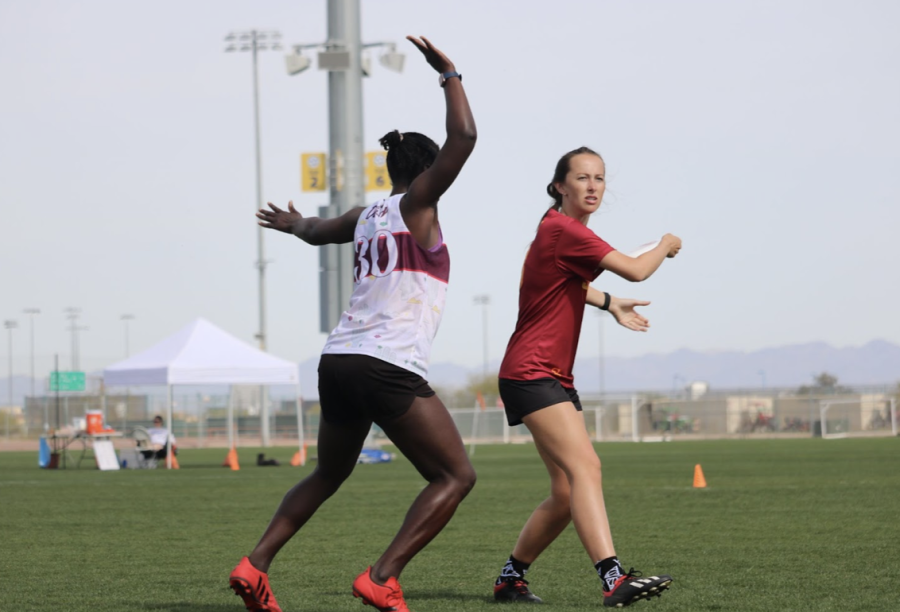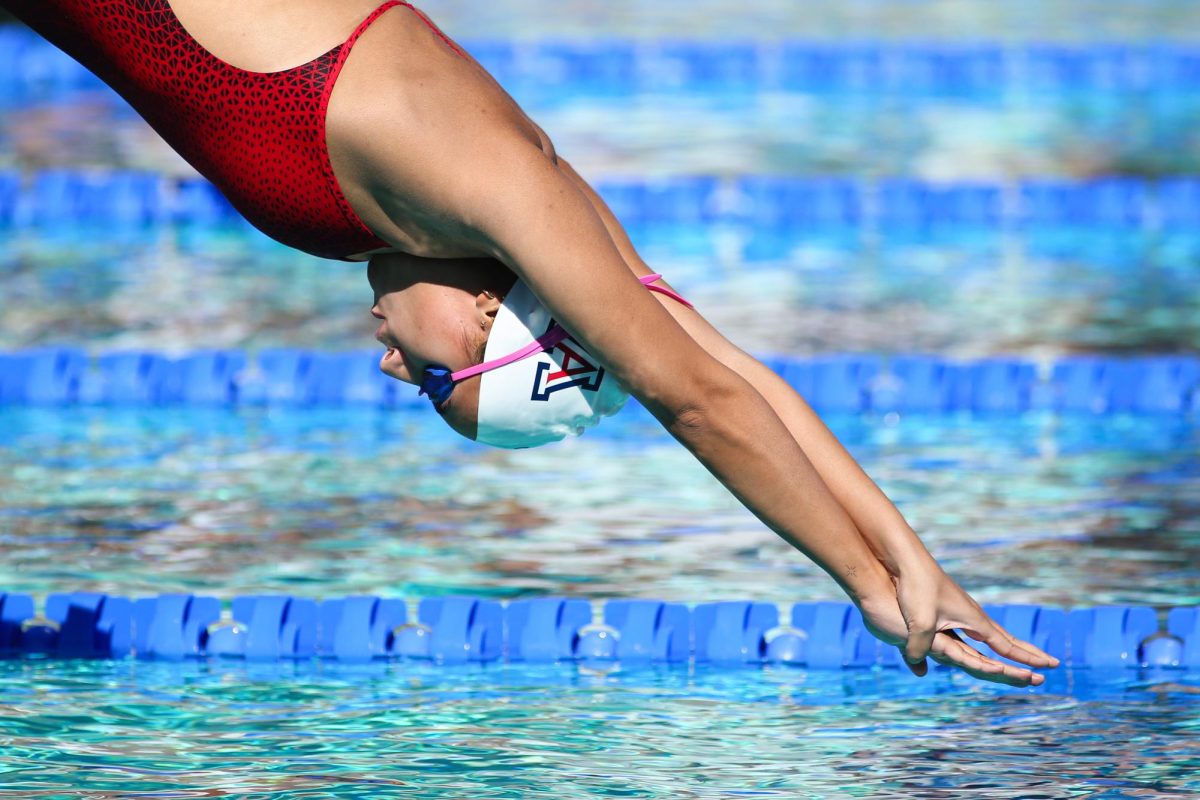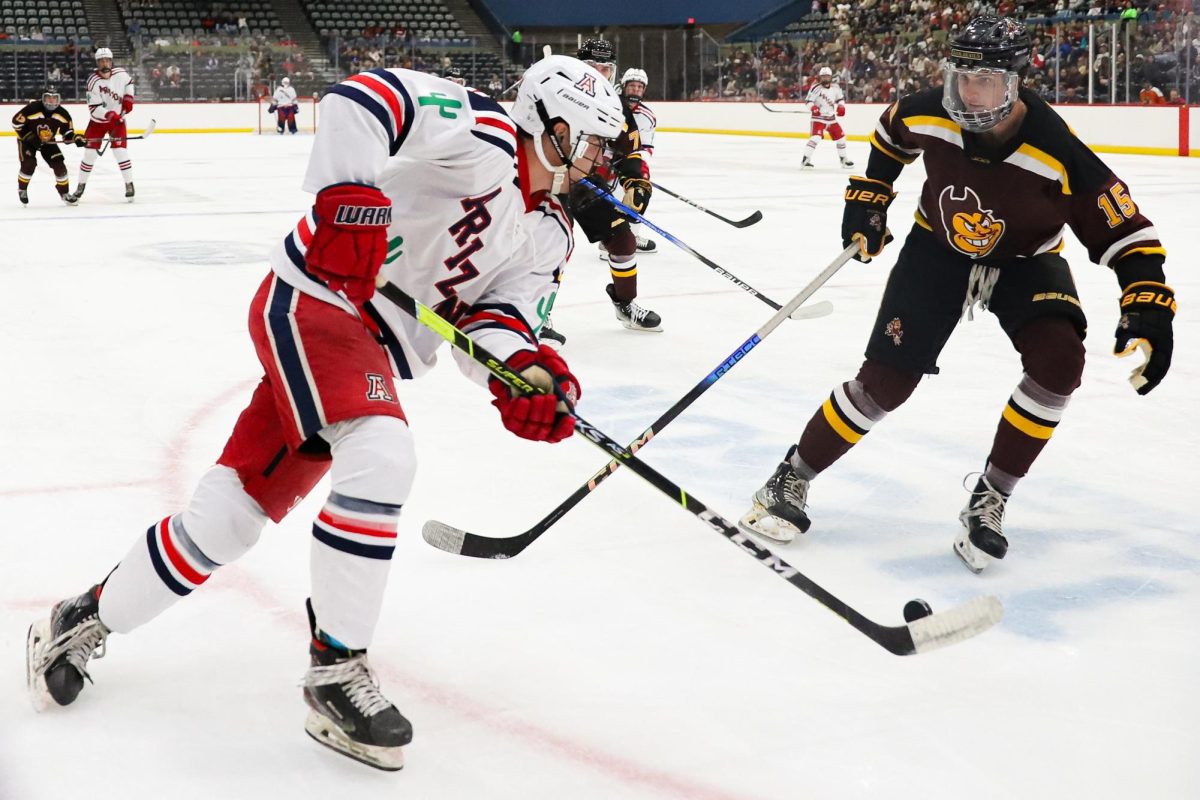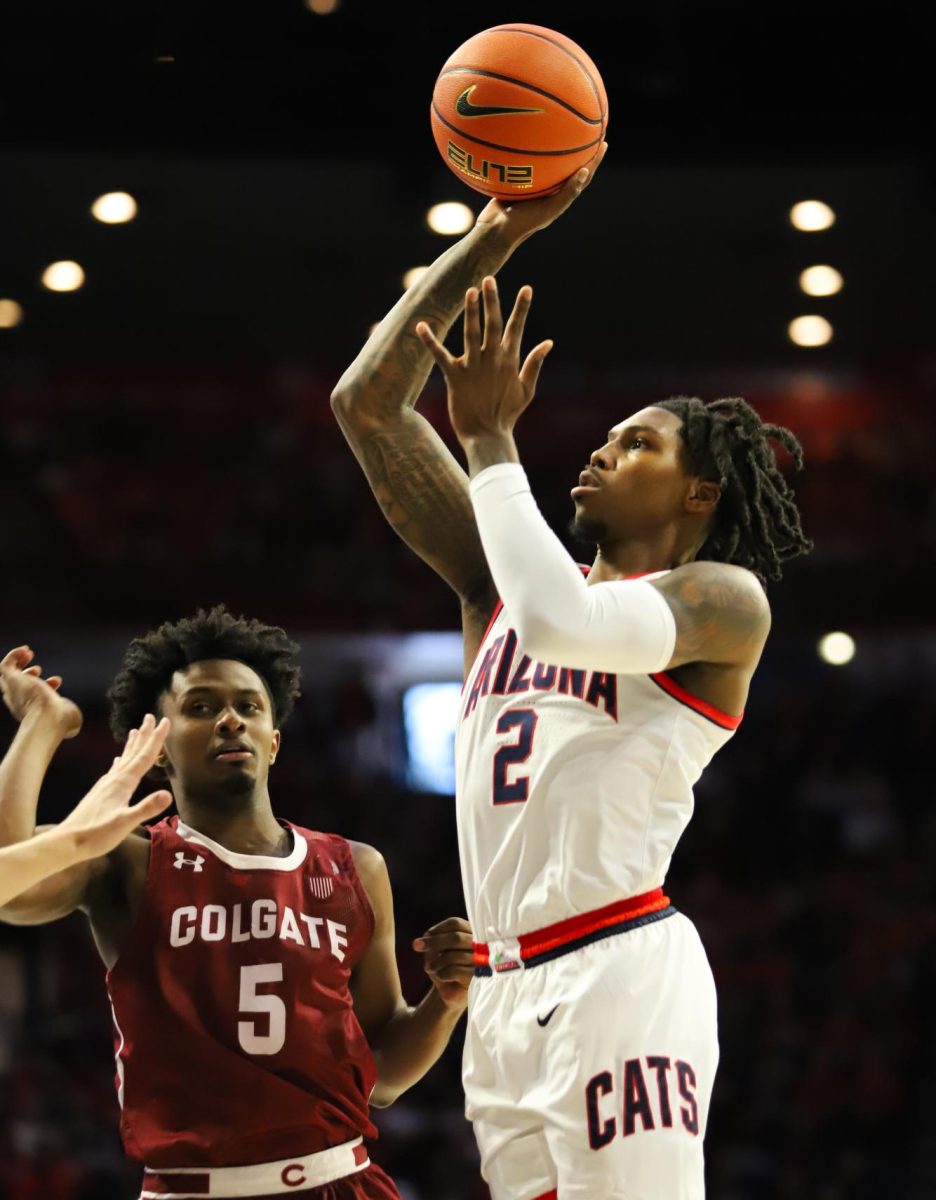College can be hard to balance for most students, let alone student athletes with priorities towards both education and sports. Many athletes implement time management skills and the support of their teammates to get through the heavy loads.
Greg Scholz is a senior who plays midfield for the University of Arizona lacrosse team. He described his experience balancing lacrosse, GreekLife and socialization.
“I’ve never had trouble thinking I’ve overbooked myself. I was in investments club and a chairman position in [Phi Gamma Delta] and I think it is definitely possible to balance, but it takes a special type of person to be bouncing between things,” Scholz said.
Scholz explained that he knows what is required of him to be both successful in his education and sport. Practice is most days during the season and it is to be prioritized like class. The coaches are attentive to their athletes’ education but expect them to get what they need done before practice.
Balancing one sport seems daunting but not compared to three. Katie Weber is a junior on the club tennis, ultimate frisbee and wheelchair tennis team. She described her focus to be on her education first and then her extracurriculars.
Similar to Scholz, Weber described that time management gets better when she is busy. She navigates her internship, class and practice through both the fall and spring semesters. The teams’ traveling is not too extensive but Weber tends to have tournaments every weekend.
Weber gets her assignments done on the way to tournaments, however the amount she gets done is based on the team she is riding with. The ultimate frisbee team remains more social than her other teams, described Weber, creating a fun but distracting atmosphere.
The coaching staff heavily prioritizes mental health, said Weber. The act of playing the game has helped some athletes keep their head straight through all the commotion.
“I find joy in playing sports. This is why I prioritize sports because it makes me feel better,” Weber said.
Scholz, an Eller marketing major, attributes his success to the aid of his teammates. Many of the players are in similar majors so there is always a way to find help, said Scholz. He hopes to help the younger players navigate the balance between being an athlete and a student.
“I try my best to help out the sophomores because they are the ones applying to Eller, and that whole process is kinda intimidating,” Scholz said.
Time management is a skill that is learned, explained Jermaine Wiggins Jr., a freshman who plays for Arizona football. The time commitment compared to high school is very different, described Wiggins.
“It has been really hard in the first place but now I got the hang of it. Football is pretty manageable and it’s just where I put my time in,” Wiggins said.
Wiggins repeated the importance of having his “mind right” and ready to grind through the grueling 6 a.m. lifts and daily meetings. Wiggin’s goal since he was a kid is to play in the league so he needs to give it everything he’s got, including his education.
“You got to treat school like it is your ticket for football. If I wanna play football then I have to lock in with school stuff,” Wiggins said.
His effort to play football has helped him in the classroom. There are many plays in his playbook and films that he must work through which helps teach him how to study.
The student athletes learned to adapt their time commitments to their team and education, but all of them found support and encouragement from their coaches and teammates. Weber, Scholz and Wiggins feel that their grades have remained strong through all of the work they put in.
Follow Ellen Nangia on Twitter















